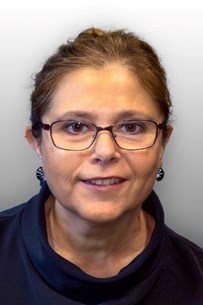Meeting
2019 ASCO Annual Meeting

University of Notre Dame Australia, School of Medicine, Sydney, NSW, Australia
Monica Cristina Robotin , Gisselle Gallego , Zeinab Mansour , Ximena Masgoret , Jack Wallace , Jacob George
Background: In Australia over 50% of hepatocellular cancers (HCC) are diagnosed in immigrants born in viral hepatitis endemic areas. Therefore, increasing community awareness of viral hepatitis as a preventable and treatable cause of liver cancer is critical in designing community-based cancer prevention programs. Although 7% of Australians living with chronic hepatitis B (CHB) were born in Africa or the Middle East, limited information exists about these communities’ knowledge and beliefs around hepatitis and cancer. To assist the design of effective strategies for screening and treatment, we conducted a community consultation process among Arabic and Assyrian-speaking communities in Sydney, Australia. Methods: The consultation involved semi-structured interviews with key opinion leaders in the Arabic and Assyrian communities and focus group discussions (FGD) conducted in Arabic, Assyrian and English with community members. Interviews and discussion were digitally recorded, translated and transcribed. Framework analysis was employed for data analysis. Results: Twelve face to face semi-structured interviews were conducted with Arabic and Assyrian community leaders. Sixty-six participants, aged from 22 to 71 years took part in seven FGDs. Findings were highly confluent and highlighted a limited knowledge and understanding of hepatitis and of links to liver cancer. Hepatitis and cancer are stigmatising diseases and kept within the family. To mitigate the distress brought about by cancer, euphemisms and protective language are used and a cancer diagnosis is not disclosed to family members. Communities’ ability to engage with the health system is limited. Fear and past medical interactions influence decision about accessing care and education levels, health literacy and English proficiency are significant barriers to navigating the health system. The internet, doctors, television and radio are the communities’ main sources of health information. Conclusions: Reluctance to talk openly about hepatitis and cancer and widespread ‘cancer fatalism’ need to be considered in clinical interactions. Health information messages need to be tailored to patients’ cultural beliefs, couched in accessible terms and delivered through a range of communication channels.
Disclaimer
This material on this page is ©2024 American Society of Clinical Oncology, all rights reserved. Licensing available upon request. For more information, please contact licensing@asco.org
2019 ASCO Annual Meeting
Publication Only
Health Services Research, Clinical Informatics, and Quality of Care: Publication Only
Quality Care/Health Services Research
Access to Care
J Clin Oncol 37, 2019 (suppl; abstr e18167)
10.1200/JCO.2019.37.15_suppl.e18167
e18167
Abstract Disclosures
2022 ASCO Annual Meeting
First Author: Eszter Csernai
2015 Gastrointestinal Cancers Symposium
First Author: Kevin J. Moore
2019 Breakthrough
First Author: Precious Takondwa Makondi
2024 ASCO Gastrointestinal Cancers Symposium
First Author: Sawyer Bawek